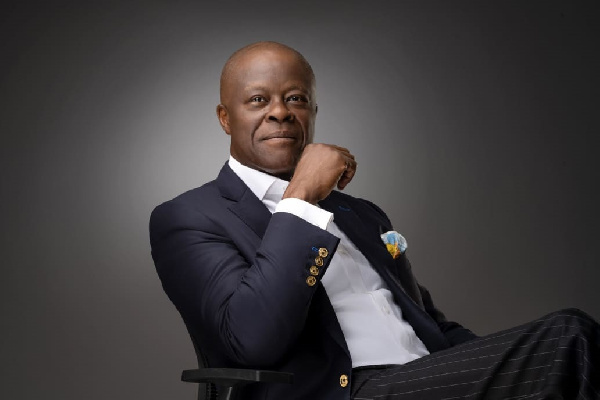Wale Edun, who serves as Nigeria’s Minister of Finance and also holds the position of Coordinating Minister for the Economy, has revealed that the Nigerian government is in active negotiations with the World Bank to secure a substantial $1.5 billion concessionary loan intended to provide crucial budgetary support.
The announcement by Edun indicates that these negotiations are at an advanced stage and the loan approval may be imminent.
The minister made this disclosure during a press conference held alongside the World Bank and International Monetary Fund (IMF) annual meetings, where the global financial landscape is assessed, and strategies are formulated. In his remarks, he also mentioned that the loan request is expected to feature on the agenda for discussion at the upcoming Federal Executive Council meeting, scheduled for Monday. This meeting is a critical platform for government officials to deliberate on various national matters, including economic policies and financial matters.

Edun’s statements shed light on the nature and purpose of this loan, highlighting that discussions on this matter have been ongoing for an extended period. The loan, as envisioned, is likely to be provided at an interest rate that approximates zero percent. This aspect of the loan is significant, as it addresses concerns related to the mounting obligations related to servicing the national debt. He emphasized that the World Bank, as the preeminent multilateral development bank, plays a pivotal role in assisting developing nations in funding their projects and programs. The institution possesses funding mechanisms, such as the International Development Association (IDA), that offer concessional financing to countries facing financial challenges.
Edun further explained, “It has this for the poorer countries and right now I think we qualify as one of the countries that are almost in the normal window of the World Bank funding but also some concessionary IDA funding. That means that effectively, the interest rate will be zero. Therefore, there is no stigma at all attached with qualifying for World Bank funding to help finance development.”
The positive aspect of obtaining concessional funding from the World Bank is that it ensures a minimal cost of borrowing, which is a vital factor for Nigeria as it seeks to manage its debt obligations effectively and reduce the strain on the national budget. Additionally, Edun emphasized the extensive efforts invested in making this loan agreement a reality, suggesting that the loan has been in the works for some time and could soon come to fruition. The minister expressed optimism that the funding would be secured without undue delay.
He noted, “A lot of hard work is being done. There’s a Federal Executive Council meeting on Monday that should be able to discuss this as well as other initiatives for the financing of reasonable terms. We’ve talked about the high money costs, but the World Bank money is the cheapest.”
This initiative brings to mind the context of the financial challenges Nigeria faced in 2020, when the World Bank approved a substantial $1.5 billion credit facility aimed at helping the country bridge its budget funding gap. The year 2020 posed unprecedented economic challenges, primarily due to a sharp decline in global oil prices, which significantly affected Nigeria’s revenue, and the onset of a challenging recession within the nation. In response to these challenges, the World Bank’s financial assistance played a crucial role in providing the needed fiscal support.
Moreover, during the same period, Nigeria also secured $3.4 billion in emergency financial assistance from the International Monetary Fund (IMF) through its Rapid Financing Instrument. These financial lifelines helped the country navigate through turbulent economic waters and stabilize its financial situation.
The ongoing negotiations for the new $1.5 billion concessional loan underscore the government’s commitment to securing additional financial resources to address its fiscal needs. It is evident that such financial support from international organizations, like the World Bank, continues to be instrumental in Nigeria’s economic recovery efforts and long-term financial stability.
In summary, Wale Edun, Nigeria’s Minister of Finance and Coordinating Minister for the Economy, has confirmed that the Nigerian government is in advanced negotiations with the World Bank to secure a $1.5 billion concessionary loan to provide essential budgetary support. The concessional nature of the loan, with an expected near-zero interest rate, is seen as a significant advantage in managing the country’s debt servicing obligations. This development follows the financial challenges Nigeria faced in 2020, where the World Bank’s support, in addition to assistance from the IMF, played a pivotal role in stabilizing the nation’s finances during a period of economic uncertainty. The ongoing discussions with the World Bank demonstrate the government’s commitment to securing financial resources to address its fiscal needs and promote economic recovery and long-term stability.
Support InfoStride News' Credible Journalism: Only credible journalism can guarantee a fair, accountable and transparent society, including democracy and government. It involves a lot of efforts and money. We need your support. Click here to Donate
